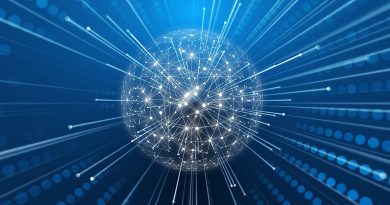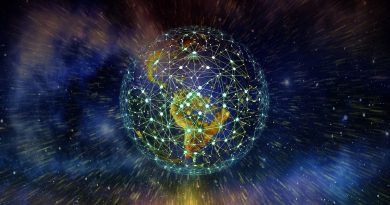The Top 10 Ethical Dilemmas of AI – Will Robots Eventually Take Our Jobs?
The ethical challenges and concerns surrounding artificial intelligence are growing as its capabilities improve. In this blog post, we explore the top 10 ethical dilemmas of AI. From the impact of AI on the workforce to the existential risks posed by superhuman artificial intelligence, these are the issues that we need to start thinking about now. So what are the top 10 ethical dilemmas of AI? Read on to find out.
What is AI?
AI is shorthand for artificial intelligence. AI is the result of combining cognitive science and machine learning techniques to artificially create something that performs tasks that only humans can perform, like reasoning, natural communication and problem-solving.
How does AI work?
AI systems are capable of performing tasks that ordinarily require human intelligence, such as visual perception, natural language understanding, and decision making. How do they do this? The key is training data. Just as a child learn by example, an AI system learns by being exposed to training data. This training data can be in the form of text, images, or video. The more training data an AI system has, the better it can learn to recognize patterns and make predictions. In some cases, an AI system may even be able to exceed human brain performance. This is known as artificial general intelligence. While current AI systems are still far from achieving artificial general intelligence, they are getting closer every day. As AI and machine learning systems become more advanced, they will increasingly be able to handle more complex tasks that require higher-level thinking skills.
How did AI started?
The term “artificial intelligence” was first coined by computer scientist John McCarthy in 1955. McCarthy is credited with being one of the founders of the field of AI. McCarthy’s vision for AI was to create a machine that could reason like a human.
In the early years, AI research was focused on creating AI systems that could perform specific tasks, like playing chess or proving mathematical theorems. This approach is known as “narrow AI”. Narrow AI is what we see in today’s consumer products, like Siri and Amazon’s Alexa. These are programs that can perform specific tasks but they cannot reason or think like a human.
The ethical implications of artificial intelligence
The ethical concerns of artificial intelligence (AI) grow as the technology improves. Below are 10 of the most pressing ethical questions and dilemmas of AI.
1. The impact of AI on the workforce
One of the most significant ethical implications of artificial intelligence is the impact that it will have on the workforce. As AI technology continues to evolve, it is becoming increasingly capable of automating tasks that have traditionally been performed by human being workers. This is already having a significant impact on the workforce, with jobs in sectors like manufacturing and retail being particularly vulnerable to automation.
While some people believe that AI will eventually create more jobs than it destroys, there is no doubt that many jobs will be lost to automation in the coming years. This raises a number of ethical concerns, including the impact of AI on employment, inequality and the future of work.
2. The existential risk posed by superhuman AI
As artificial intelligence becomes more advanced, some experts have raised concerns about the ethical implications of developing superhuman AI. One of the key ethical issues is that of control. If artificial intelligence surpasses human intelligence, then it could potentially become self-aware and autonomous. This raises the question of who would control such a powerful AI system, and how they would ensure that it acted in ethical ways.
Another ethical issue is that of safety. If an AI system were to become super intelligent, it could potentially pose a threat to humanity if it decided that human beings were a hindrance to its goals. As such, it is important to consider the ethical implications of developing superhuman AI before progressing too far down this path.
3. The use of AI in warfare
Ethical considerations of artificial intelligence have been prevalent since the technology’s inception. Ethical implications of AI warfare are especially significant, given the potential destruction and loss of human life that could result from its use. Unfortunately, there is no easy answer when it comes to the ethical use of AI in warfare. On the one hand, some argue that the use of AI can help to reduce civilian casualties by more precisely targeting enemy combatants. On the other hand, there is a risk that AI could be used to commit war crimes or target civilians if it falls into the wrong hands. The use of AI in warfare is a complex ethical dilemma with no clear solution. However, it is important to continue to explore the ethical implications of this technology in order to ensure that it is used in a way that minimizes harm to innocent people.
4. The impact of AI on privacy
One of the most talked-about ethical issues of artificial intelligence is privacy. When we think about AI, we often think about intrusive technologies like facial recognition software and GPS tracking. However, AI can also have a more subtle impact on our privacy. For example, consider a health app that uses AI to track our fitness data. This app might know more about our health than our doctor does. Or consider a social media platform that uses AI to recommend content to us. This platform might know more about our interests and preferences than our closest friends do. As AI becomes more ubiquitous, it is increasingly important to consider the ethical implications of this technology. How much information should we allow AI to gather about us? And who should have access to this information? These are difficult questions with no easy answers. However, as AI continues to transform our world, it is essential that we grapple with these issues.
5. The impact of AI on democracy
As artificial intelligence (AI) becomes more advanced, it is increasingly being used to automate tasks that were previously performed by humans. While this has led to increased efficiency and productivity in many industries, it has also raised ethical concerns about the impact of AI on democracy. One worry is that AI may be used to manipulate public opinion by spreading false information or biased narratives. Another concern is that AI may be used to monitor and track individuals, violating their privacy and civil liberties. Ultimately, the ethical implications of AI remain largely unexplored territory, and as AI becomes more ubiquitous, it is important to consider the impact that it may have on our democracy.
6. The impact of AI on mental health
The ethical implications of artificial intelligence (AI) are far-reaching and complex. As AI continues to evolve, it is increasingly being used in a variety of fields, including mental health. While AI holds great promise for improving the delivery of mental health care, there are also ethical concerns that must be taken into account. For example, one key ethical issue is the potential for AI to be used to diagnose and treat mental illness without the consent of the individual. There is also a risk that AI could be used to manipulate or exploit individuals with mental health conditions. As such, it is essential that the ethical implications of AI are carefully considered before it is implemented in the field of mental health.
7. The impact of AI on society
There is no doubt that artificial intelligence (AI) is rapidly evolving and becoming more sophisticated every day. While some people view this as a positive development, others are concerned about the ethical implications of AI. As AI becomes more advanced, it is increasingly being used to make decisions that have a significant impact on people’s lives. For example, AI is being used to select candidates for job interviews, determine insurance premiums, and diagnose medical conditions. In many cases, AI is making these decisions without any human judgment or oversight. This raises concerns about the potential for bias and discrimination. Moreover, as AI becomes more involved in our lives, there are concerns about the loss of privacy and the potential for abuse. As we become increasingly reliant on AI, it is important to consider these ethical issues carefully. Failure to do so could have serious consequences for our human society.
8. The impact of AI on the economy
As artificial intelligence continues to develop, it is having an increasingly significant impact on the economy. One of the most important questions raised by this technology is ethical in nature: what are the AI ethics we should get concerned? This question is particularly relevant when considering AI’s potential to automate jobs. If machines can do the work of humans more efficiently and cheaply, mass unemployment could result. This could have a devastating effect on people’s livelihoods and on the economy as a whole. ethical issues of artificial intelligence need to be carefully considered in order to ensure that the technology is used in a way that is beneficial for society as a whole.
9. The impact of AI on the environment
Artificial intelligence (AI) is rapidly evolving, and its impact on the environment is already being felt. ethical issues of artificial intelligence In particular, ethical implications of AI the way in which AI is designed and used can have significant consequences for the natural world. For example, autonomous vehicles are increasingly being used in farming and mining operations. These vehicles can cover vast distances in a short period of time, but they also use large amounts of fuel and generate emissions that contribute to climate change. As AI becomes more widespread, it is important to consider its impact on the environment and take steps to mitigate any negative consequences. Otherwise, we risks exacerbating the climate crisis and causing irreparable harm to our planet.
10. The impact of AI on our humanity
One of the most polarizing issues in recent years has been the impact of artificial intelligence (AI) on our humanity. Some believe that AI is a valuable tool that can help us solve complex problems and improve our lives in countless ways. Others are concerned about the ethical implications of its use, arguing that AI could be used to exploit and control people rather than help them. The truth is, both sides have valid points. AI definitely has the potential to revolutionize our world for the better. However, we need to be aware of the ethical implications of its use and take steps to ensure that it is used responsibly. Otherwise, we could end up with a future that is more dystopian than utopian.
Conclusion
AI is a rapidly evolving technology with the potential to transform our world in both positive and negative ways. As we become increasingly reliant on AI, it is important to consider the ethical implications of its use. failure to do so could have serious consequences for our society. The issues raised by AI are complex, and there are no easy answers. However, it is important to have a dialogue about the ethical implications of AI in order to ensure that the new technologies are used in a way that are beneficial for all.



